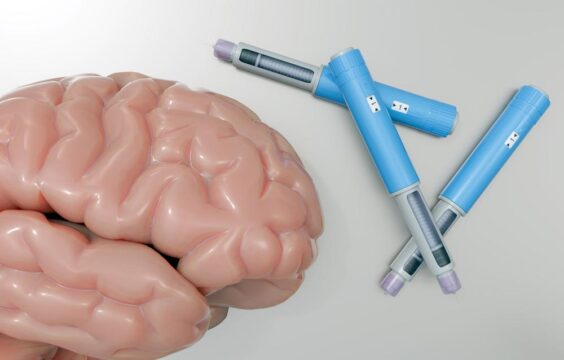Advertisment
Simultaneous treatment for diabetes and depression improves both
Brief adherence programmes improve diabetes test results and depression symptoms. Patients simultaneously treated for both Type 2 diabetes and depression showed improved medication compliance and significantly improved blood sugar and depression levels compared to patients receiving usual care, according to a new study by researchers from the Perelman School of Medicine at the University of Pennsylvania. Of patients receiving integrated care combined with a brief period of intervention to assist with adherence to prescribed medication regimens, more than 60% had improved blood sugar test results and 58% had reduced depression symptoms, compared to only 36% and 31%, respectively, of patients receiving usual care. The full results of the study are published in the January/February issue of the Annals of Family Medicine.
There is a link between depression and diabetes – as depression is a risk factor for diabetes, diabetes also increases the risk for the onset of depression. Not only is depression common in patients with diabetes, but it also contributes to poor adherence to medication regimens, which often results in worsening diabetes management.
“Though research demonstrates the link between depression and diabetes, few integrated programmes are being implemented in practice,” said lead author Hillary Bogner, MD, MSCE, an assistant professor of Family Medicine and Community Health in the Perelman School of Medicine, and a senior scholar at the Center for Clinical Epidemiology and Biostatistics, both at the University of Pennsylvania. “Our results demonstrate that integrated treatment for both conditions, combined with a brief programme focused on adherence for primary care patients with Type 2 diabetes and depression can result in a significant improvement in clinical outcomes. We hope the findings will encourage the adoption of adherence programmes aimed at improving outcomes.”
Researchers randomly assigned participants to integrated care or usual care groups. Treatment for the integrated care group combined typical primary care with a brief medication adherence programme. Primary care physicians and patients worked with integrated care managers to identify and address potential barriers to maintaining the prescribed medication regimen, such as the cost of medications, or a lack of social support. Integrated care managers developed individualised programmes aimed at improving adherence to antidepressants and diabetes medication. Through the use of electronic monitors affixed to pill bottles, researchers were able track the precise date and time participants took their prescribed medications over the course of a 12-week period.
After 12 weeks of monitoring for medication adherence, 60.9% of patients who received the integrated approach were found to achieve improved blood sugar test results, compared to only 35.7% patients who received only the usual primary care. Additionally, patients in the integrated care group were also more likely to show signs of remission of depression in comparison with patients in the usual care group (58.7% vs. 30.7%, respectively).
“Our study calls for a greater emphasis within healthcare systems on the development and promotion of clinical programmes to enhance medication adherence, particularly among patients with chronic medical conditions and depression,” said Dr. Bogner. “An integrated approach to depression and Type 2 diabetes treatment may facilitate adoption in practices with competing demands for limited resources.”
Additional authors include Knashawn H. Morales, ScD, and Heather F. de Vries, MSPH, and Anne R. Cappola, MD, ScM, from Penn.
The current study was supported by an American Diabetes Association Clinical Research Award (1-09-CR-07). Dr. Bogner was supported by the National Institute of Mental Health grant (MH082799). Dr. Morales was supported by a National Institute of Mental Health mentored Career Development Award (MH073903). The research is based on a pilot study supported by the Penn Institute on Aging, where Drs. Bogner and Cappola are both fellows of the Institute.





